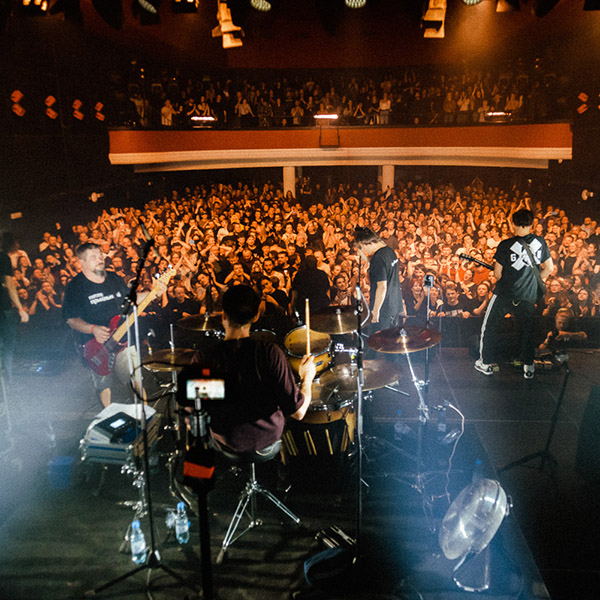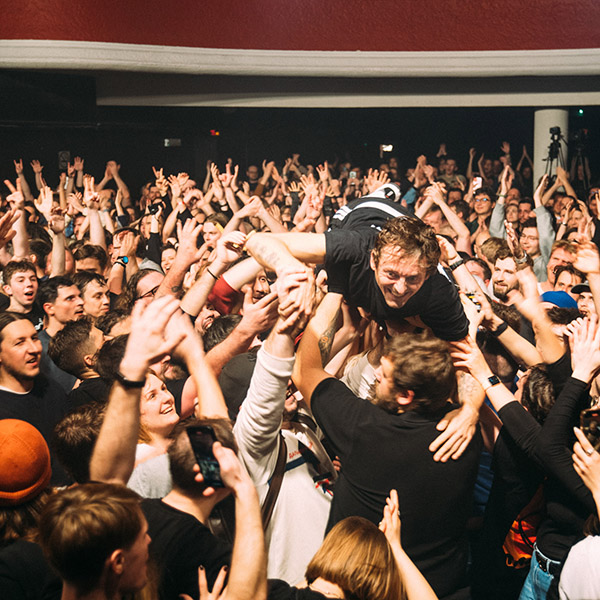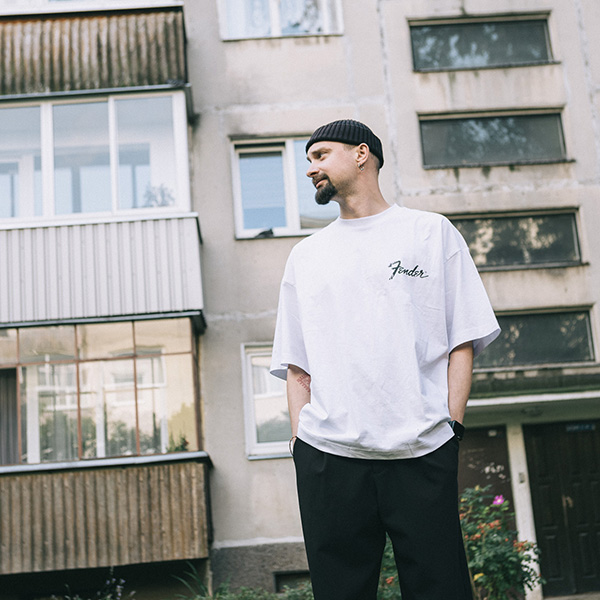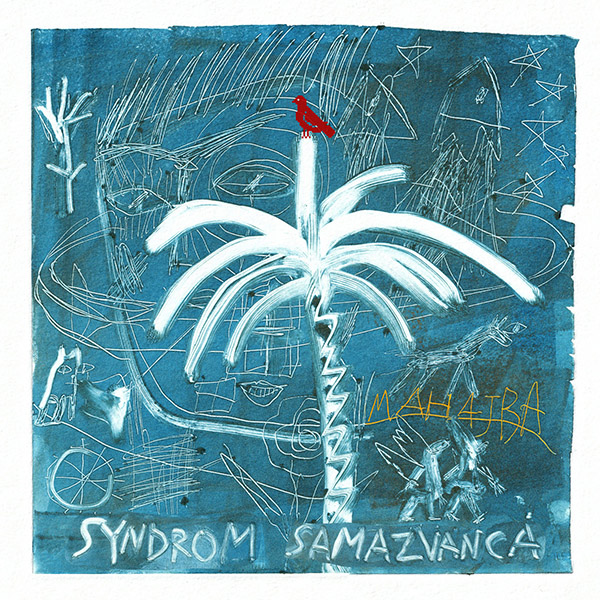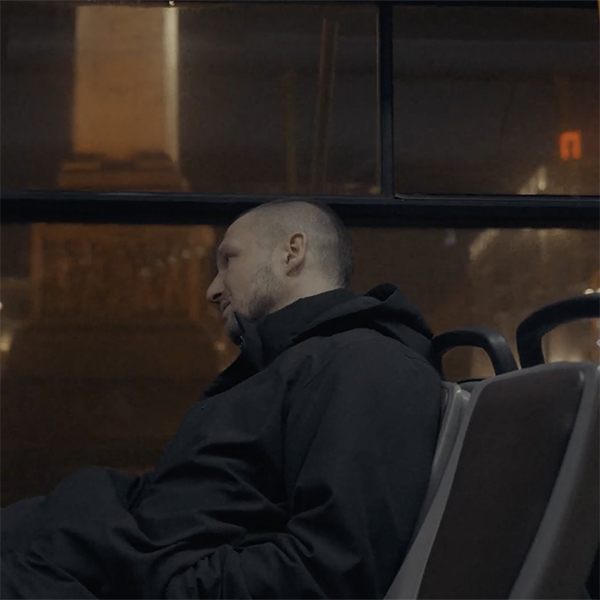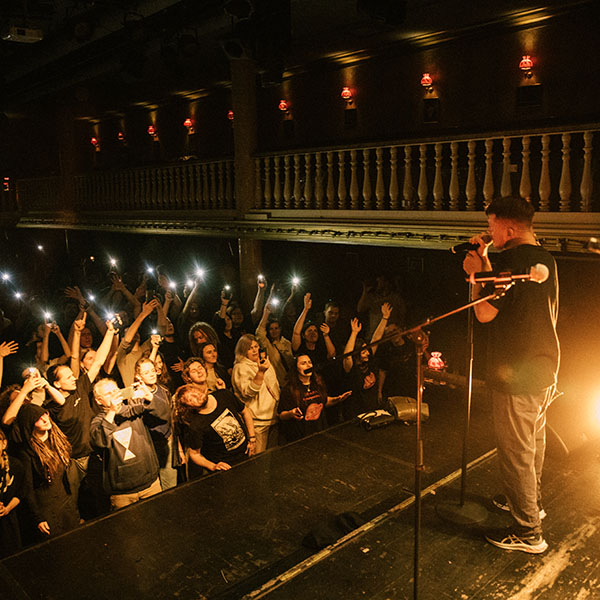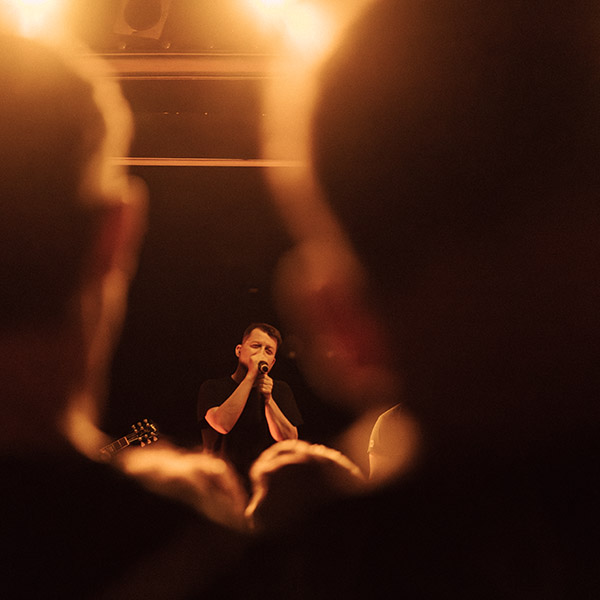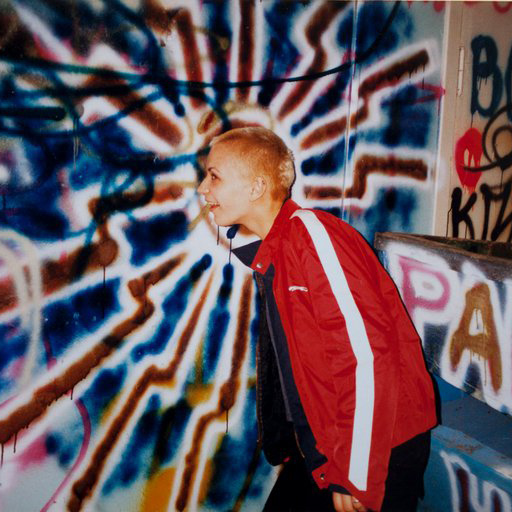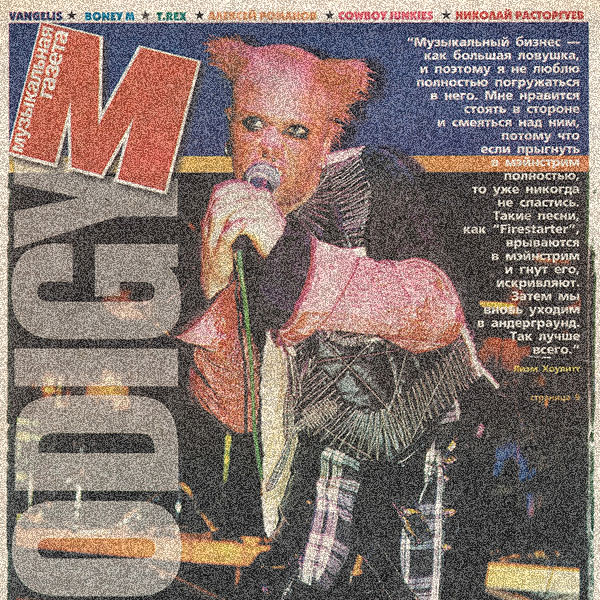Мэйджары не здаюцца: інтэрв’ю з менеджарам Warner Music Group
- ЧЫТАЦЬ ПА-БЕЛАРУСКУBEL
- READ IN ENGLISHENG
У менскай канферэнцыі Emerge нейкім неверагодным чынам атрымалася сабраць у адным месцы прадпрымальнікаў, наватараў і творчых людзей, якія разам спрабавалі зазірнуць у будучыню тэхналогій і лічбавай творчасці. 34mag злавіў на кава-брэйку аднаго з музычных экспертаў, менеджара сусветнага лэйбла Warner Music Group Ц’ягу Курэя і запытаў, чаму вялікія музычныя гульцы дужа інвестуюць у тэхналогіі, як блакчэйн можа змяніць індустрыю і чаму Элтан Джон ніколі не сыдзе на пенсію. Ніколі.

Ц’ягу Курэя (Tiago Correia) – менеджар па развіцці сусветнага лічбавага бізнэсу ў Warner Music Group (global digital business development manager). За восем гадоў у сферы ён паспеў папрацаваць з такімі гучнымі кампаніямі, як Spotify, PayPal, The Times, Google і Amazon. Паміж бізнэс-трыпамі ён таксама грае ў гурце This Thing We Call Jam у Лондане.
![]()
Асабістая страсць
– Я люблю музыку, пішу і выконваю яе на працягу доўгага часу. Яна заўсёды была часткай мяне як спажыўца. З маленства я пачаў апантана адкрываць новую музыку і падсеў на Queen. Як менеджар я арганізоўваў музычныя фестывалі ў Порту і ўдзельнічаў у знакамітым партугальскім фестывалі Nos Alive. Затым пераехаў у Лондан, дзе пачаў займацца кансалтынгам і засяродзіўся больш на медыя і забавах, а ў 2016 годзе стварыў уласную кампанію. Але з гадамі я бесперапынна факусаваўся ўсё больш і больш на музыцы – таму што страсць. Так я апынуўся ў Warner.
Праца ў Warner
– Тое, што я раблю для Warner, можна падзяліць на тры часткі. Па-першае, мне трэба быць у курсе ўсіх новых тэхналогій, бізнэс-мадэляў, інавацыйных канцэпцый і спрабаваць укараніць іх у кампанію. Па-другое, я «сватаю» лэйблы і артыстаў з бізнэсам і тэхналогіямі, распрацоўваю камерцыйнае пагадненне для нашай далейшай працы. І апошняе – будую стратэгічнае партнёрства: мы інвестуем альбо набываем кампаніі з інавацыйнымі бізнэс-мадэлямі і цікавымі падыходамі. Таксама я як частка інавацыйнай каманды ў Warner сачу за бізнэс-развіццём Еўропы і Ізраіля.
«Я “сватаю” лэйблы і артыстаў з бізнэсам і тэхналогіямі»
Музычная індустрыя і тэхналогіі
– Калі музычная індустрыя была не пра тэхналогіі? Са з’яўленнем першых музычных інструментаў – вазьмі хоць барабаны ў Афрыцы – тэхналогіі былі заўсёды ўласцівыя музычнай індустрыі. Усё пачалося з інструментаў, а цяпер у нас паўсюдна студыі гуказапісу, DAW і электроннае распаўсюджванне дадзеных. Дыджытал заўсёды быў вялікай часткай музычнай індустрыі.
У мінулым музычная індустрыя не была ў фарватары ўкаранення новых тэхналогій, у тым ліку і мэйджар-лэйблы. Таму цяпер такія кампаніі, як Warner, дужа інвестуюць у новыя тэхналогіі. Яны цікавяцца тым, як новыя тэхналогіі могуць дапамагчы ім расці і заставацца ўплывовымі гульцамі на рынку.
Цяпер музычная індустрыя аднаўляецца ад 20-50 гадоў зніжэння прыбыткаў. Гэта было звязана з тым, што некаторыя тэхналагічныя тэндэнцыі, у прыватнасці лічбавая дыстрыбуцыя, не палічыліся ў свой момант важнымі, а існуючыя мадэлі падаліся больш прывабнымі на фоне новых. На маю думку, мы толькі-толькі пачалі апраўляцца ад гэтага спазнення. Вось чаму так важна для Warner быць у курсе новых мадэляў дыстрыбуцыі і публікацый музычнай прадукцыі. Гэтыя новыя мадэлі могуць якасна змяніць і нават сфармаваць новую музычную індустрыю. Калі мы не ўбачым перадумовы да гэтага дастаткова рана, то зменяцца і гульцы на рынку, і такія кампаніі, як наша, могуць аказацца на іншай пазіцыі.
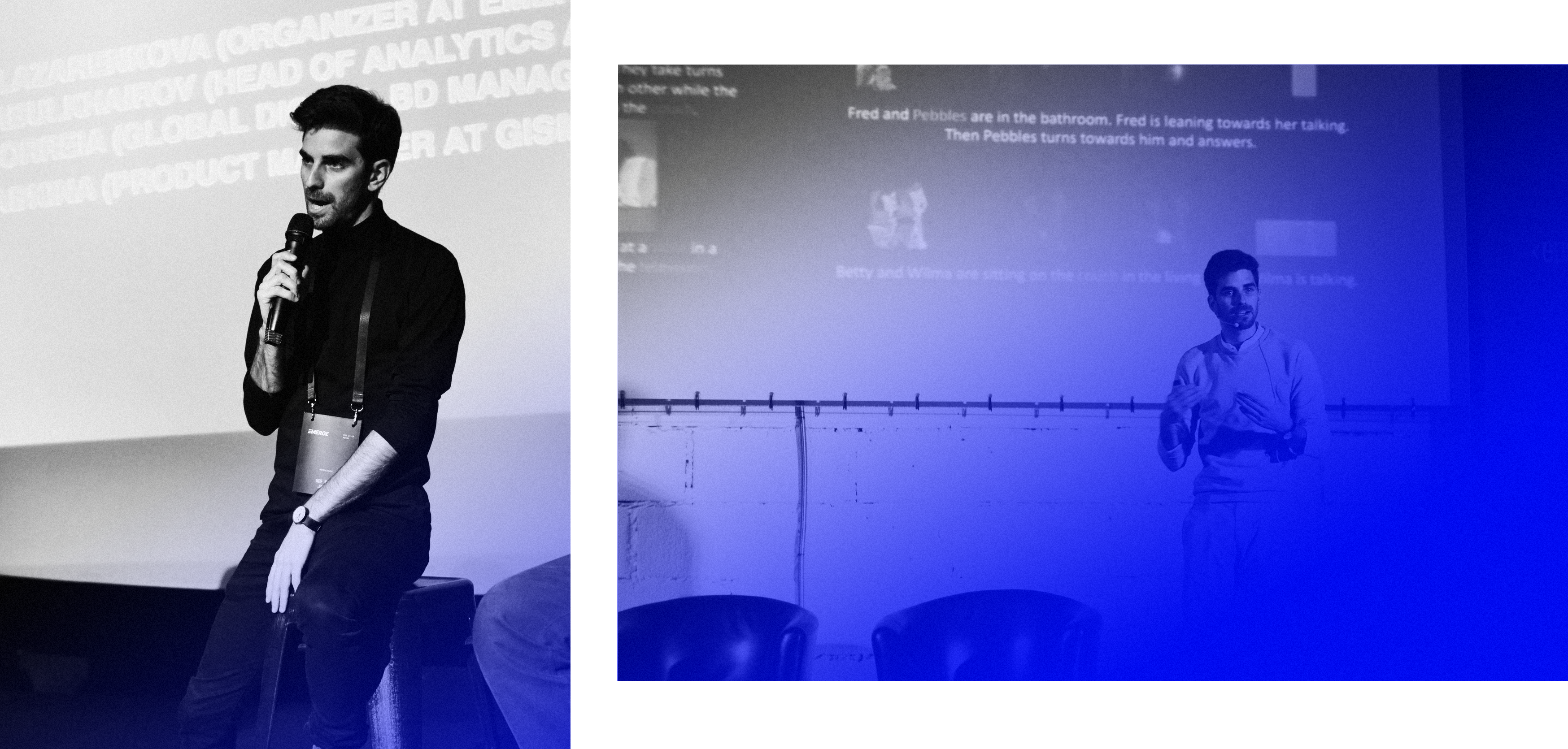
«Цяпер музычная індустрыя толькі аднаўляецца ад 20-50 гадоў зніжэння прыбыткаў»
Музыка штучнага інтэлекту
– Выкарыстанне штучнага інтэлекту будзе велізарным, яно ўжо набірае абароты. Я думаю, што ў AI-музыцы нават узнікае асобны рынак. У пэўных прадуктах яна можа быць вельмі дарэчнай, і гэтыя прадукты будуць мець спажыўцоў. Але якімі будуць паводзіны спажыўцоў? Я лічу, што рынак дастаткова шырокі як для людзей, якім падабаецца музыка, але яны не ведаюць, што гэта AI-музыка; так і для тых, хто ведае, і тых, хто не пераносіць AI-музыку. Я чалавек, які любіць любы музычны эксперымент, асабліва звязаны з новымі тэхналогіямі!
Блакчэйны і музыка
Блакчэйн – гэта рэвалюцыйная тэхналогія. Яна дазваляе транзакцыі, якія не былі магчымыя ў музычнай індустрыі раней. Imogen Heap, вядомая спявачка ў Вялікабрытаніі, была першай артысткай, якая выпусціла музычны твор праз блакчэйн. Глабальная прававая база дадзеных была вялікай марай музычнай індустрыі ў мінулым, і цяпер такія кампаніі, як Jaak і Blockpool, спрабуюць выкарыстоўваць блакчэйн для карэкцыі метададзеных і іх пашырэння. Гэта азначае, што, маючы інфармацыю пра тое, хто і што напісаў, ты дакладна ведаеш, каму і колькі плаціць, калі выкарыстоўваеш пэўны твор. Каштоўнасць блакчэйну – у трыманні гэтай інфармацыі празрыстай і лёгкадаступнай.
Блакчэйн можа таксама вырашыць праблемы капірайтынгу і аплаты роялці. Але паўстае іншае пытанне: ці апраўдае ён сваё выкарыстанне ў гэтых канкрэтных выпадках? Наколькі блакчэйн лепшы за існуючыя тэхналогіі? Людзі яшчэ спрачаюцца на гэты конт. Блакчэйн усё яшчэ вельмі хаатычны, людзі спрабуюць зразумець яго. Усё залежыць ад таго, ці далучацца артысты і індустрыя да гэтых ініцыятыў. Час пакажа, што і як з гэтага будзе прынята.
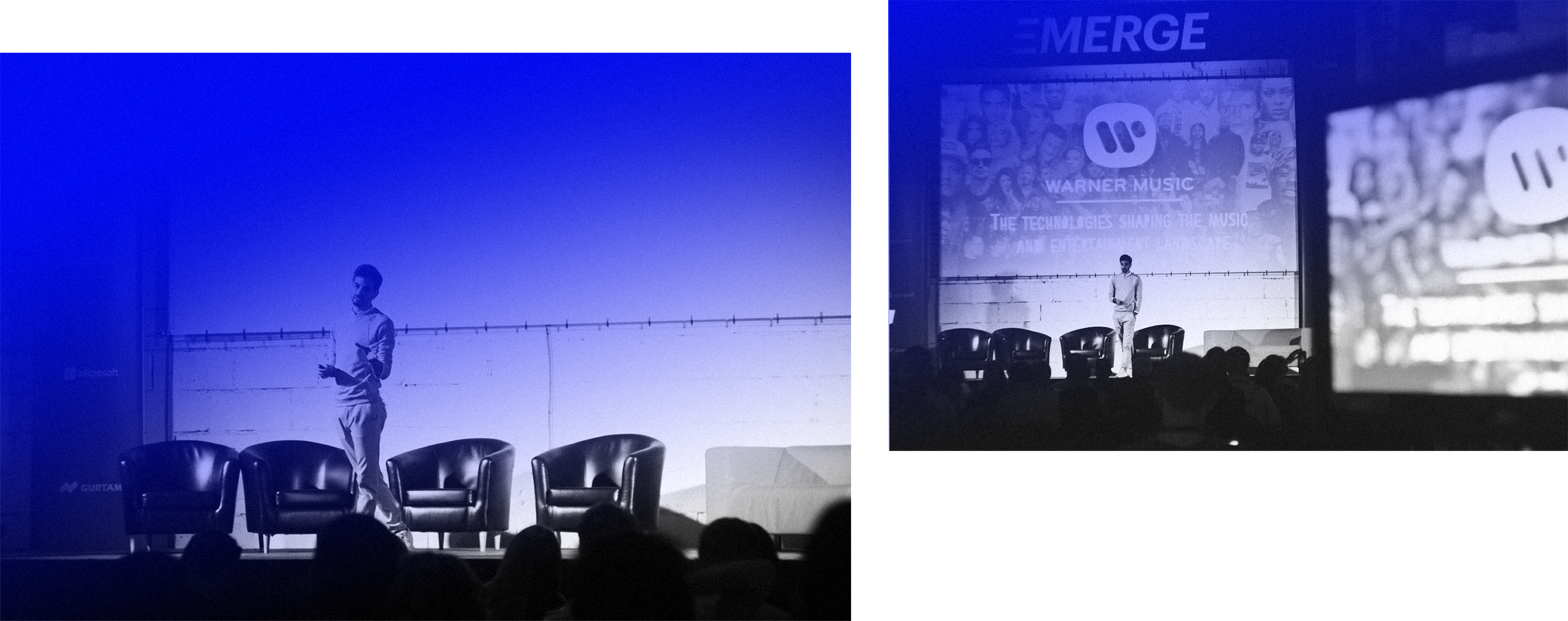
Элтан ніколі не знікне
Раскажу пра свежы выпадак. Нядаўна Элтан Джон заявіў, што збіраецца кінуць сваю гастрольную кар'еру і сысці ў адстаўку. Але ён зрабіў тры рэчы, якія суправаджаюць гучнае развітанне. Па-першае, ён робіць 300-дзённы тур са сваім новым дыскам з пераробленымі хітамі (Менска, на жаль, няма, але самая блізкая кропка – Кракаў. – 34mag). Па-другое, у хуткім часе ты зможаш вандраваць у часе і ўбачыць розныя этапы кар'еры Элтана на свае ўласныя вочы ў яго развітальным VR-туры Elton John's Farewell Yellow Brick Road!
Ты зможаш апынуцца на першых выступленнях Элтана ў клубе The Troubadour у Лос-Анжэлесе, калі ён быў маладзейшым і зграбнейшым, апранаўся па пэўнай модзе, а таксама пабачыць яго ўжо ў сталым узросце, калі форма яго цела змянілася, як і манернасць. І ты зможаш быць дзе заўгодна ў гэтым VR-трыпе: усё мадэлюецца ў камп’ютарнай графіцы на аснове існуючага відэаматэрыялу і таму выглядае вельмі рэалістычна.
«Элтан Джон працуе з аўстралійскай кампаніяй Spinifex і амерыканскай Rival Theory, каб стварыць віртуальную версію самога сябе»
Але нават не гэта самае неверагоднае, што зрабіў Элтан. Ён не хацеў так проста сыходзіць! Насамрэч Элтан збіраецца жыць вечна. Цяпер ён працуе з аўстралійскай кампаніяй Spinifex і амерыканскай Rival Theory, каб стварыць віртуальную версію самога сябе. Збор дадзеных, неабходных, каб змадэляваць яго манернасць, спосабы работы, ігры і стварэння музыкі, патрабуе шмат часу. Але гэта будзе жыць вечна. Такім чынам, ты зможаш загрузіць Элтана нават пасля яго смерці. І ён будзе ўзаемадзейнічаць з табой і паказваць табе, напрыклад, як ён ствараў свой хітовы «Rocket Man». Ён можа нават навучыць цябе некаторым сваім трукам. Гэта геніяльна. Спадчына Элтана будзе жыць вечна, і гэта проста ўзарвала мне мозг!
На жаль, кава-паўза скончылася, і мы павінны былі адпусціць Ц’ягу спалучаць музыку і тэхналогіі далей, але бонусам ён пакінуў нам некалькі нішцякоў. Музычны сталкер з Warner падзяліўся з намі плэйлістом любімага савецкага дыска і ўсходнееўрапейскага фанку:
А таксама даў некалькі крутых спасылак для тых, хто хоча крочыць у нагу з тым, што цяпер адбываецца ў музычнай індустрыі.
![]() Complete Music Update. Ц’ягу любіць гэты медыйны рэсурс за асаблівы тон падачы матэрыялаў. Іх цікава чытаць, нават калі яны тычацца прававога развіцця музычнай індустрыі і тэхналогій.
Complete Music Update. Ц’ягу любіць гэты медыйны рэсурс за асаблівы тон падачы матэрыялаў. Іх цікава чытаць, нават калі яны тычацца прававога развіцця музычнай індустрыі і тэхналогій.
![]() Music Ally – адукацыйная і кансалтынгавая кампанія, якая дапамагае скрыжаваць музыку і тэхналогіі.
Music Ally – адукацыйная і кансалтынгавая кампанія, якая дапамагае скрыжаваць музыку і тэхналогіі.
![]() Music Business Worldwide – навіны, інсайты і аналіз міжнароднай музычнай індустрыі.
Music Business Worldwide – навіны, інсайты і аналіз міжнароднай музычнай індустрыі.
![]() Больш падрабязна пра блакчэйн і музыку.
Больш падрабязна пра блакчэйн і музыку.
![]()
Таксама паслухай jazz and everything бэнд Ц’ягу This Thing We Call Jam.
Фота прадстаўлены канферэнцыяй Emerge
Emerge gathered entrepreneurs, creatives, innovators, and influencers in Minsk for a sneak peek into the future of technology and digital creativity. 34mag caught on a coffee break one of music experts, the manager of the global label Warner Music Group Tiago Correia, and asked why big music players, such as Warner, are now investing in technologies, how blockchain can change the industry, and why Elton John simply doesn’t retire. Ever.

Tiago Correia is (take a breath – it’s a long one) global digital business development manager - innovation and emerging technology at Warner Music Group. Being an expert in music, media, entertainment and tech, Tiago has worked with Spotify, NBCUniversal, CNN, Google, Amazon and many more. But that’s not the most important thing about him. Most importantly, Tiago consumes and ingests a lot of new music every single day. With eight years of experience in his field behind, Tiago explained to us why big music players, such as Warner, are now investing in technologies, how blockchain can change the industry, and why Elton John simply doesn’t retire. Ever.
![]()
Personal Passion
– I love music and I’ve been writing and performing music for a long time. I think music was always a part of me as a consumer, I grew up listening to Queen and became obsessed with discovering new music from an early age. From the business side, I created a music festival in Porto (“A little kiss for my Mom”) and worked for the biggest Portuguese music festival Nos Alive. When I moved to London I focused more on media and entertainment, and in 2016 created my own company https://tiagotc.com with the intention to focus even more on the music business. This is how I ended up at Warner – focusing more and more on what I love.
Working at Warner
– What I do for Warner can be broken down into three things: 1) Being aware of new technologies, emerging business models, innovative content formats, and seed those into the company. I try to match-make the labels and artists with new startups and technology, as well as explore how technology can further the company’s wider vision; 2) Striking deals with those providers of technology: either through licensing, partnership or commercial agreements; 3) Forging strategic partnerships by investing in or acquiring promising companies. My remote within the Innovation team at Warner, is to oversee Europe and Israel.
“I try to match-make the labels and artists with new startups and technology, as well as explore how technology can further the company’s wider vision”
Technologies are shaping music industry. You can’t miss that
– When was the music industry not about technology? As soon as instruments started existing – even drums in Africa – technology was a part of it. Instruments are technology, and then came recording studios, digital audio workstations (DAWs) – and this is just on the production side. On the distribution, digital has been a big part of the music industry with the mp3, iTunes, etc. I believe the music industry will always rely heavily on new technologies.
We all know the industry was not absolutely perfect in adopting new technologies in the past, including major labels. Which is why I see it as a great sign that a company like Warner has teams now focusing on encouraging and supporting innovation.
The music industry is now recovering from 20 or so years of slowly decreasing revenues where its value was cut in half. There were a few reasons as to why that happened but no one can dispute the importance that ignoring digital distribution played to it. The industry saw it as a threat to its existing models and it decided hold their ground, defending them to the teeth as opposed to welcoming the new models.
So I think we are just going through this big, very big learning process. That's why it's important for us to be aware of what’s new these days. It’s proven that new models can definitely change and essentially shape a new music industry. If we don't see these challenges and opportunities early enough, then they’ll be able to replace the incumbent players.

“The music industry is now recovering from 20 or so years of slowly decreasing revenues where its value was cut in half”
How do you find that AI music?
– Artificial intelligence is going to be huge, it already is, and in music specifically I think it’s going to be very relevant. Artists have the creative freedom to do whatever they want because they are artists, and if they want to do music with the help of AI then what’s the problem with that? It’s all about how consumers will perceive the output. I genuinely think the market is big enough for people to like AI-created music without knowing that there’s an AI behind it; and for for people who know its AI-created music and who like it, and even for people who don't like AI music and who don’t want anything to do with it. Personally, I'm someone who likes experimentation in music, so I’m looking forward to what’s to come.
Blockchains and Music
– Blockchain is a complex topic. It’s a revolutionary technology that allows transactions and data to be securely recorded in a public and decentralized ledger for music that can have many implications. Imogen Heap, a visionary artist in the UK, was the first musician who released a piece of music through the blockchain. The global rights database was a big dream of the music industry in the past, where you would have a common database for all creative rights information, and there are now companies taking their first steps into that world, use the blockchain for metadata correction and metadata enhancement. That means having the information on who wrote what and who recorded what, and therefore who should be paid and how much when that work is used. And the value of blockchain is keeping that information transparent and easily accessible across a global network of computers.
Blockchain can be a tool for solving problems in music industry, like copywriting and royalty tracking. The big question: is the tech ready and does it pose a real benefit for those specific cases? Is using blockchain better than using the existing technologies? This is what people are still debating. Blockchain is still very messy, people are still trying to understand it. It all depends on whether artists and the industry players. The revolution can’t come without them. I think it's going to take some time for we to see all some of these technologies adopted and to figure out what’s the best way to do so.

Elton just doesn’t retire
– The case study which I keep going back to again and again (people get bored when I start to talk about it) is actually very recent. Elton John has announced that he's going to quit his touring career and retire (Insert crying part here). But he did three things to accompany his farewell. First, he will do a 300-date farewell tour (no Minsk, ehhhh! but the closest spot is Krakow) to accompany the release of the album with his revamped classics. Second, he’s releasing a VR farewell experience where you’ll be able to go through the different stages of Elton's career!
From the first Elton's performance in the Troubadour in LA, when he was younger (and skinnier), to his first arena show and all the way to his later years, when he is more mature (and his body shape considerably different). Everything will change with the course of time, from fashion to mannerisms, and you’ll be able to relive it – based on existing footage, but all modelled in computer graphics – and it looks very realistic.
“Elton John is now working with Australian company Spinifex and the US-based Rival Theory to create a virtual self-modelled version of himself”
But that’s not even the best thing that he did! Elton just didn't want to quit like that! Elton doesn't simply retire. He’s now working with Australian company Spinifex and the US-based Rival Theory to create a virtual self-modelled version of himself. Gathering data about every aspect of himself, modelling his mannerisms, ways of working, playing, composing, etc. To create AI Elton. That will live forever. So essentially you will be able to ‘load up’ Elton even after his death. And he will interact with you! And if you're a musician sitting by the piano, you can see how he composed Rocket Man or he can even teach you some of his tricks. It’s pure genius. It just allows Elton's legacy to live forever, and that really blew my mind!
Unfortunately, the coffee break is over, and we had to let go Tiago combine music and technology further, but he left us a few links. Musical stalker from Warner shared with us some of his favourite Soviet Disco and other Eastern Bloc Funk favourites:
Some great recommendations from Tiago to stay tuned:
![]() Complete Music Update – a media outlet with a specific tone of voice that is really fun to read. Even if it’s about legal development of the music industry and technology.
Complete Music Update – a media outlet with a specific tone of voice that is really fun to read. Even if it’s about legal development of the music industry and technology.
![]() Music Ally – for a technical side of things.
Music Ally – for a technical side of things.
![]() Music Business Worldwide – a platform that contains news, insight and analysis of the international music industry.
Music Business Worldwide – a platform that contains news, insight and analysis of the international music industry.
![]() More about blockchain and music.
More about blockchain and music.
![]()
In London, Tiago also has a band “This Thing We Call Jam”
Photos provided by Emerge



